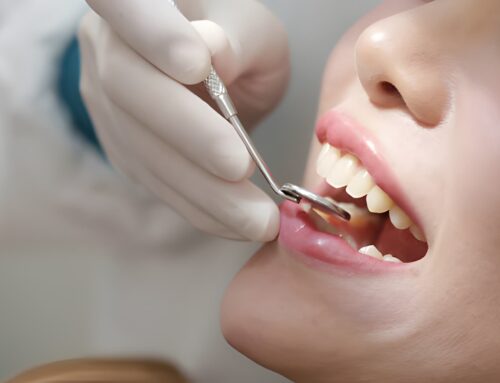Is Composite Bonding Done on the NHS?
A bright, confident smile can make a big difference in how you feel. Are you thinking of improving your smile? You might wonder if the NHS offers composite bonding. This article will explore composite bonding, its benefits, and whether you can get it on the NHS.
Understanding Composite Bonding
Composite bonding is a dental procedure that enhances the appearance of your teeth. It involves applying a tooth-coloured resin to your teeth. Then, the resin is shaped and polished. This treatment can fix many dental issues. It can fix gaps, discolouration, and minor chips. Composite bonding is unlike some other cosmetic treatments. It is non-invasive and preserves your natural teeth.
Benefits of Composite Bonding
Composite bonding offers several advantages:
Affordability: Compared to options like veneers or dental crowns, composite bonding is often more budget-friendly.
Minimally Invasive: It usually requires little to no removal of tooth enamel, preserving your tooth structure.
Quick Procedure: Composite bonding can often be completed in a single visit to your dentist’s office.
Natural Appearance: The resin used in bonding can be matched to your tooth colour, resulting in a natural look.
Versatility: It can address various cosmetic issues, including gaps, stains, and misshapen teeth.
The Role of the NHS in Dental Care
The NHS provides comprehensive dental care to eligible individuals in the UK. This includes many vital dental services. It includes check-ups, fillings, and extractions. It also includes treatments for gum disease. The NHS focuses on keeping and fixing oral health. It does this for medical, not just cosmetic, reasons.
Composite Bonding on the NHS: Eligibility Criteria
Composite bonding is primarily considered a cosmetic treatment. But, there are cases when it may be available from the NHS:
Clinical Necessity
Composite bonding may be considered on the NHS if there is a clinical necessity. For example, if you have a damaged or decayed tooth, it needs fixing. Your dentist may recommend this treatment. In such cases, the focus is on restoring the tooth’s function and health.
Medical Reasons
If your oral health requires composite bonding for medical reasons, the NHS may cover it. This could include cases where bonding is needed to fix issues that impact your health. For example, issues with eating or speaking.
Special Cases
In rare cases, like severe dental trauma or birth defects, the NHS may provide composite bonding. It is to improve oral function and appearance.
Cosmetic Bonding for Aesthetic Purposes
It’s important to note that the NHS does not cover composite bonding. This is because it’s for cosmetic reasons, like making healthy teeth look better. The NHS prioritises treatments that address medical needs. It does not prioritise treatments for aesthetic desires.
NHS Dental Band Charges
The NHS dental services in the UK are organised into three different bands, each with a set fee. The treatment you get decides your band. The cost varies with the band.
Band 1: This covers basic examinations and diagnosis, including X-rays.
Band 2: It includes treatments like fillings, extractions, and other essential dental work.
Band 3: This band covers more complex procedures like crowns, bridges, and dentures.
Composite bonding is a cosmetic treatment. It usually does not qualify for these bands. It must have a specific clinical purpose, like fixing a damaged tooth.
Alternatives to NHS for Cosmetic Dentistry
If you’re interested in composite bonding or other cosmetic dental treatments not covered by the NHS, you can get private dental care. Private dental practices offer many cosmetic procedures. These include bonding, whitening, and veneers. While these services come with associated costs, they provide you with the opportunity to enhance your smile according to your preferences.
Conclusion
Composite bonding is a valuable cosmetic dental procedure that can transform your smile. But, for NHS coverage, it’s essential to understand this. The NHS focuses on key dental care. These are aimed at maintaining oral health. Cosmetic dentistry, including composite bonding, is generally not covered under the NHS. Suppose you’re interested in improving your smile, such treatments. You can explore private dental care to get your desired results. Remember: your smile is valuable. There are options to help you get the confident, beautiful smile you want.
Before choosing composite bonding, consult a dentist. They can assess your needs and discuss your treatment options. This applies whether through the NHS or privately. By understanding the criteria, and exploring the options, you can make an informed choice. You can decide on using composite bonding to improve your smile.
Take the Next Step with Broxburn Smile Centre
At Broxburn Smile Centre, we believe everyone deserves a beautiful smile. If you are considering composite bonding to improve your teeth, our team has experience. We are here to help. We offer comprehensive consultations to assess your needs and discuss your treatment options. You may qualify for NHS coverage. Or, you may need to explore private options. We are committed to giving the best care and results.
Book your consultation today. It’s the first step towards a brighter, more confident smile with Broxburn Smile Centre. Or, visit our website to learn more about our services and book your appointment.
FAQs About Composite Bonding on the NHS
What is composite bonding?
Composite bonding is a dental procedure where a tooth-coloured resin is applied to teeth to improve appearance, fix gaps, chips, and discolouration. It’s non-invasive and preserves natural teeth.
Is composite bonding available on the NHS?
Composite bonding is usually not covered by the NHS unless there’s a clinical necessity, such as repairing a damaged tooth or addressing severe dental trauma.
What conditions make composite bonding eligible on the NHS?
Composite bonding might be covered by the NHS if there’s a clinical necessity, medical reasons impacting oral health, or severe dental trauma requiring functional and aesthetic restoration.
How long does composite bonding take?
Composite bonding is a quick procedure, often completed in a single dental visit, making it a convenient option for many patients.
How much does composite bonding cost privately?
The cost of composite bonding varies by clinic, but it’s generally more affordable than other cosmetic treatments like veneers or crowns.
Does composite bonding require the removal of tooth enamel?
Composite bonding is minimally invasive and typically requires little to no removal of tooth enamel, preserving the natural tooth structure.
Can composite bonding fix discoloured teeth?
Yes, composite bonding can correct discolouration by applying a tooth-coloured resin that matches your natural teeth, improving overall appearance.
Are there alternatives to composite bonding?
Yes, alternatives include veneers, crowns, and teeth whitening. Consulting with a dentist can help determine the best option for your specific needs.











